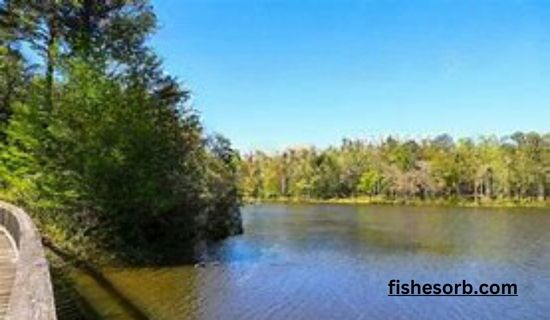Introduction
Freshwater lakes are exquisite natural wonders that dot the landscape, offering tranquility, recreation, and an essential source of life for fish and more species. In this article, we will dive deep into the world of freshwater lakes, exploring their formation, freshwater lakes for fishes biodiversity, significance, and the environmental challenges they face.
What Are Freshwater Lakes?
Freshwater lakes are bodies of water that contain non-saline, or fresh, water. They can range in size from small ponds to vast expanses like the Great Lakes in North America. These ecosystems are a vital part of our planet, providing habitat for various aquatic and terrestrial organisms.
Role of Freshwater Lakes in Ecosystems
Freshwater lakes are keystone components of the Earth’s ecosystems. They help maintain water quality, support plant life, and serve as nurseries for aquatic species. Additionally, they contribute to the global carbon cycle by storing vast amounts of carbon.
Freshwater Lakes for fishes
Freshwater Lakes for fishes host a plethora of fish species. Some of the most common include bass, trout, catfish, perch, and walleye. These fishes have evolved to thrive in the still waters of lakes, adapting to various conditions and diets.
Threats to Freshwater Lakes
Sadly, freshwater lakes are under constant threat from pollution, habitat destruction, and invasive species. Human activities and climate change further exacerbate these issues, endangering the fragile balance of these ecosystems.
Conservation Efforts
Fortunately, numerous organizations and individuals are working tirelessly to protect and preserve freshwater lakes. Their efforts focus on habitat restoration, water quality management, and the removal of invasive species, ensuring that these ecosystems continue to thrive.
Benefits of Fishing in Freshwater Lakes and Freshwater Lakes for fishes
Fishing in freshwater lakes is a popular and cherished pastime. It offers a unique connection to nature and a sense of accomplishment when reeling in a catch. Additionally, it provides a sustainable source of fresh, local food. that is why Freshwater Lakes is best home for fishes
The Taste of Freshwater Fish
Freshwater fish have a unique and delicious taste that varies from species to species. Whether it’s the flaky texture of trout or the firmness of catfish, these fish make for delightful culinary experiences.
Health Benefits of Consuming Freshwater Fish
Consuming freshwater fish can have several health benefits. They are a great source of lean protein and essential nutrients like omega-3 fatty acids, which support heart and brain health.
The Formation of Freshwater Lakes
The creation of freshwater lakes is a fascinating geological process. They can form through several mechanisms, such as tectonic activity, glacial activity, volcanic craters, and even human-made reservoirs. Each type of lake has a unique origin story, shaping its characteristics.
Biodiversity in Freshwater Lakes
Freshwater lakes are teeming with life. They host a diverse array of organisms, including fish, amphibians, birds, and various invertebrates. The interactions within these ecosystems are intricate, creating delicate balances that sustain life.
Human Impact on Freshwater Lakes
Unfortunately, freshwater lakes are not immune to human influence. Pollution, overfishing, habitat destruction, and climate change are threatening their delicate ecosystems. It is our responsibility to preserve these invaluable resources for future generations.
Conclusion
In conclusion, freshwater lakes are invaluable gems on our planet. They offer beauty, sustenance, and recreation to countless people and wildlife. It’s our duty to protect and preserve these precious bodies of water for future generations.
FAQs
FAQ 1: What is the difference between freshwater lakes and saltwater lakes?
Freshwater lakes contain non-saline water, while saltwater lakes, also known as saline or salt lakes, have high salt concentrations. Saltwater lakes are often found in arid regions and can be saltier than the ocean.
FAQ 2: How do freshwater lakes contribute to our drinking water supply?
Freshwater lakes are a significant source of drinking water for many communities. Water from lakes is treated and distributed to households and industries after rigorous purification processes.
FAQ 3: Can you swim in all freshwater lakes?
Swimming in freshwater lakes is generally safe, but it’s essential to be aware of local regulations and potential hazards like currents, water quality, and wildlife. Always follow safety guidelines when swimming in natural bodies of water.
FAQ 4: Are there any dangerous animals in freshwater lakes?
While most freshwater lakes host harmless species, some may contain potentially dangerous creatures, such as alligators or certain species of fish. It’s crucial to be informed about the local wildlife and exercise caution when swimming or boating.
FAQ 5: What are some popular recreational activities around freshwater lakes?
Recreational activities around freshwater lakes include fishing, boating, kayaking, canoeing, swimming, and camping. These activities allow people to enjoy the beauty and serenity of freshwater lake environments.



